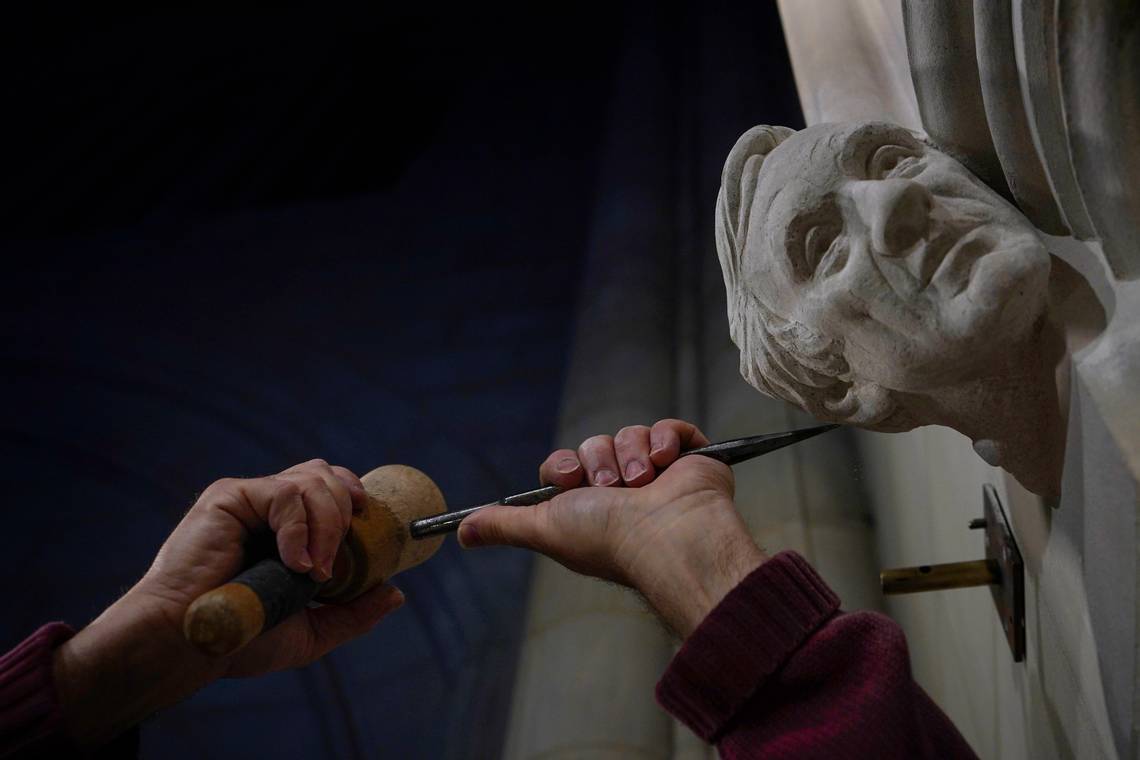
Washington National Cathedral, the massive Episcopal house of worship that prides itself on being an unfinished work-in-progress whose stones and stained glass tell the story of the 20th and 21st centuries, is unveiling its newest addition: a carving of iconic author, human rights campaigner and Holocaust survivor Elie Wiesel.
The carving completes a quartet of heads of prominent figures sprouting from the four corners of an alcove known as the Human Rights Porch, joining Mother Teresa, Rosa Parks and Jonathan Myrick Daniels, a young Episcopal theologian and civil rights crusader who was shot to death in Alabama in 1965, giving his life to protect a 17-year-old Black woman.
Wiesel, who died in 2016, was the author of 57 books including “Night,” which is based on his experiences as a Jewish prisoner in the Auschwitz and Buchenwald concentration camps. He became an outspoken advocate for human rights causes around the world, helped found the United States Holocaust Memorial Museum and was awarded the Nobel Peace Prize in 1986.
The Rev. Randy Hollerith, the cathedral’s dean, choose Wiesel for the alcove’s final corner, calling him “the living embodiment of resilience in the face of hatred.” Wiesel’s inclusion is particularly important as the number of living Holocaust survivors dwindles, he added.
Artist Chas Fagan, who created all the sculptures in the Human Rights Porch, worked off photos and videos provided by Wiesel’s family to fashion a clay image of Wiesel’s head that cathedral stone carver Sean Callahan and head stonemason Joe Alonso used to make a plaster model. Then Callahan, using specialized calibration equipment, painstakingly carved the image into a small slab of rock that has been sticking out of the wall for years awaiting a fourth face.
Before it was permanently etched into stone, the image of Wiesel was approved by his widow, Marion. The Holocaust Museum and the Elie Wiesel Foundation for Humanity will partner with the cathedral for a series of events and programs later in the year.
Conceived in the 1990s, the Human Rights Porch also includes small statues of former first lady Eleanor Roosevelt and Óscar Romero, the Roman Catholic archbishop of El Salvador who was assassinated in 1980 and was later canonized as a saint by Pope Francis, in 2018.

Post Your Comments